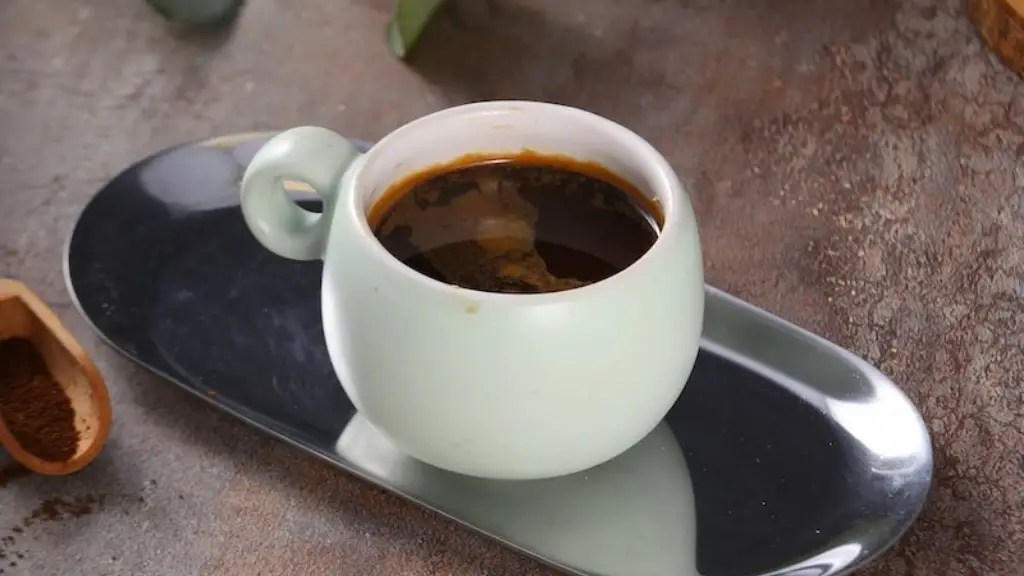What’s the deal with drinking coffee after using teeth whitening strips? Can we really do it? Or do we have to abstain for a certain amount of time?
One interesting characteristic of teeth whitening strips is their ability to increase tooth sensitivity temporarily. Caffeine, as it turns out, is another factor that can increase tooth sensitivity.
Considering these two facts, is there a possibility that drinking coffee after using whitening strips could make our teeth even more sensitive?
The short answer is – yes. According to a study by the University of Complutense, drinking coffee (or any other beverages containing caffeine) shortly after whitening was found to increase sensitivity significantly. Additionally, they found that the effects lasted longer in participants who consumed coffee soon after whitening than those who abstained.
But it’s important to keep in mind that this doesn’t mean that you can’t ever drink coffee again after whitening your teeth. It just means that you have to be mindful of the timing.
Experts say that the best way to keep your teeth from becoming too sensitive after whitening is to be sure to wait about 72 hours before drinking any coffee again. This gives your teeth time to “readjust” and recover from the whitening process.
It’s also important to be aware of the potential long term effects of drinking coffee after whitening. Many people don’t realize that drinking coffee regularly can actually cause discoloration over time, as well as make any tooth sensitivity you experience after whitening even worse.
That’s why, if you are planning to drink coffee after whitening your teeth, it’s important to be aware of the potential side effects and do your best to limit your exposure to caffeine.
Using Mouthwash
Another way to help reduce any sensitivity you may experience after whitening is to use a desensitizing mouthwash. These mouthwashes contain active ingredients that help to fight off any sensitivity and make your teeth less prone to staining.
Before using a desensitizing mouthwash, it’s important to talk to your dentist first to make sure that it is the right choice for you. Some of these mouthwashes contain alcohol and it’s important to take into account any other medications you may be taking that could interact with it.
Your dentist will be able to provide you with a comprehensive list of desensitizing mouthwashes that are right for you.
When choosing a desensitizing mouthwash, it’s important to pay attention to the ingredients. Some products may contain artificial sweeteners, which can actually cause further staining if not used according to the instructions.
It’s also important to stick to the recommended usage instructions. If the instructions say to use the mouthwash twice a day, be sure to follow that. Otherwise, the mouthwash might not be as effective.
Avoiding Certain Foods and Drinks
In addition to limiting your intake of caffeine, it’s also important to avoid certain other foods and drinks. Foods and drinks like red wine, dark soda, and dark juices can all cause staining and discoloration.
It’s also important to avoid drinking any kind of hot beverages, like tea or hot chocolate. These kinds of beverages can cause the teeth to expand, making them more prone to staining and discoloration.
Finally, it’s important to avoid any staining foods, like berries and other brightly colored fruits and vegetables. Staining foods can cause the teeth to become more prone to discoloration, and can make any tooth sensitivity you experience after whitening even worse.
Using Whitening Toothpastes
Using whitening toothpastes is an effective strategy for preventing and managing tooth sensitivity after whitening. These toothpastes contain ingredients that not only help to keep your teeth stain-free, but also help to reduce sensitivity.
Most whitening toothpastes contain ingredients like fluoride, which helps to protect the enamel and keep it strong. Additionally, many whitening toothpastes contain ingredients like calcium carbonate and silica, which helps to remove plaque and stains from the teeth.
It’s important to note, however, that some whitening toothpastes can be abrasive. If this is the case, it’s best to switch to a gentle, non-abrasive toothpaste to help reduce any potential sensitivity.
It’s also important to be mindful of how you’re using your whitening toothpaste. If you’re brushing too hard or too often, this can cause further abrasions to the enamel, which can increase tooth sensitivity.
Using a Desensitizing Gel
Using a desensitizing gel is another effective way to reduce tooth sensitivity after whitening. These gels contain ingredients like potassium nitrate which help to reduce the sensation of tooth sensitivity.
When using a desensitizing gel, it’s important to follow the instructions carefully. If you are using a desensitizing gel that is applied directly to the teeth, be sure to use it as directed in order to ensure optimal results.
Additionally, it’s important to note that these gels are not meant to be used on a daily basis. Most gels are designed to be used on an as-needed basis, so it’s important to only use them when you’re experiencing tooth sensitivity.
Limiting Toothbrushing Habits
Finally, it’s important to be aware of your toothbrushing habits. Brushing too aggressively or too often can cause further abrasion to the enamel, which can increase tooth sensitivity.
It’s important to use a soft-bristled toothbrush, as well as using a gentle, circular motion when brushing. Additionally, it’s important to only brush twice a day, allowing your teeth enough time to rest in between.
It’s also important to pay attention to the type of toothpaste you’re using. As mentioned earlier, some whitening toothpastes can contain abrasive ingredients, which can worsen any tooth sensitivity you experience.
Lastly, it’s important to floss daily and visit the dentist every 6 months to ensure that your teeth stay healthy and free from staining and discoloration.





